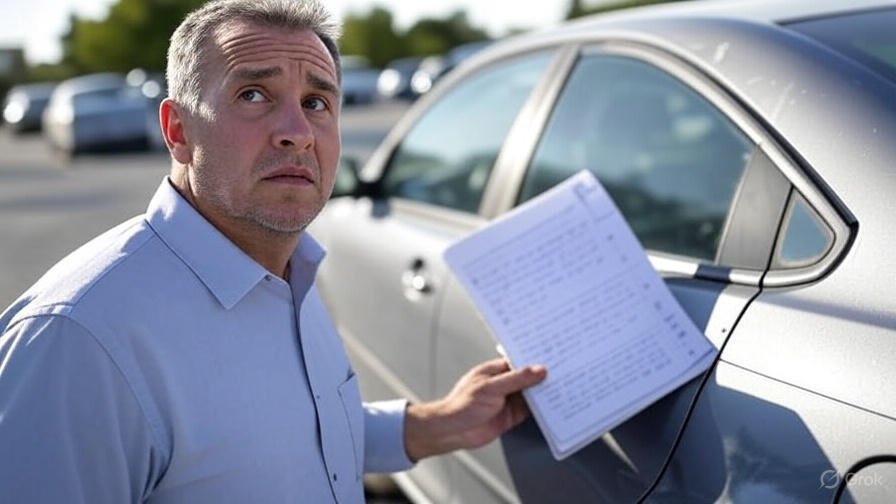A minor car accident can be a jarring experience, even if no one appears seriously injured. The moments following a fender-bender or low-speed collision are critical for protecting your legal rights and ensuring you’re not left vulnerable to disputes or financial burdens. While the damage may seem minimal, overlooking key steps can lead to complications with insurance claims, liability disputes, or even personal injury claims down the line. This article outlines the essential actions to take after a minor car accident to safeguard your interests, based on recent legal and insurance industry insights.
1. Ensure Safety and Check for Injuries
Your first priority after any collision is safety. If the vehicles are still operational and it’s safe to do so, move them to the side of the road to avoid obstructing traffic and reduce the risk of further accidents. Turn on hazard lights to alert other drivers. Check yourself and any passengers for injuries, even if they seem minor. Symptoms like neck stiffness or headaches may not appear immediately but could indicate whiplash or other issues. If anyone is hurt, call 911 immediately to request medical assistance.
Recent data from the National Highway Traffic Safety Administration (NHTSA) shows that nearly 30% of injuries from minor crashes go unreported initially, only to surface days later. Documenting any discomfort early can strengthen your case if you need to seek medical compensation later.
2. Call the Police to File a Report
Even in a minor accident, contacting law enforcement is a wise step. A police report provides an official record of the incident, which can be invaluable for insurance claims or legal disputes. When the police arrive, provide a clear and honest account of what happened without admitting fault. Statements like “I’m sorry” or “I didn’t see you” could be interpreted as admissions of liability, which may harm your case later.
In some jurisdictions, police may not respond to minor accidents unless there are injuries or significant property damage. If this is the case, you can often file a report online or at a local station. According to a 2024 study by the Insurance Research Council, having a police report increases the likelihood of a smooth insurance claim process by 40%.
3. Exchange Information with the Other Driver
Collect essential details from the other driver involved in the accident. This includes:
- Full name and contact information
- Driver’s license number
- Insurance company name and policy number
- Vehicle make, model, and license plate number
Be polite but cautious during this exchange. Avoid discussing who was at fault or speculating about the cause of the crash. If there are witnesses, ask for their contact information as well, as their statements could help clarify the circumstances of the accident.
4. Document the Scene Thoroughly
Evidence gathered at the scene can make or break your ability to protect your legal rights. Use your smartphone to take clear photos of:
- Damage to all vehicles involved
- The accident scene, including road conditions and traffic signs
- Any skid marks or debris
- License plates and vehicle positions
Additionally, write down your recollection of the event as soon as possible, noting the time, weather, and any contributing factors. This documentation can help counter conflicting accounts from the other party. A 2025 report from the American Bar Association emphasizes that photographic evidence is now a cornerstone of minor accident claims, often outweighing verbal testimony in disputes.
5. Notify Your Insurance Company Promptly
Contact your insurance provider as soon as possible to report the accident, even if you don’t plan to file a claim immediately. Most policies require prompt notification, and delays could jeopardize your coverage. Provide factual details about the incident and share any documentation, such as photos or the police report. Be honest but avoid speculating about fault or injuries until you’ve had time to assess the situation fully.
Insurance companies often assign adjusters to evaluate claims. Be cautious when speaking with the other driver’s insurer, as they may try to minimize their client’s liability. If you’re unsure how to proceed, consulting a legal professional before giving a recorded statement can help protect your interests.
6. Seek Medical Attention, Even for Minor Symptoms
Even if you feel fine, schedule a medical evaluation within 24–48 hours of the accident. Soft tissue injuries, concussions, or internal issues may not be immediately apparent. A doctor’s report can link any injuries to the accident, which is crucial if you need to pursue compensation later. Keep records of all medical visits, diagnoses, and treatments, as these will support any claims for medical expenses.
The Centers for Disease Control and Prevention (CDC) notes that delayed treatment for minor injuries can lead to chronic pain in 15–20% of cases. Acting quickly not only protects your health but also strengthens your legal position.
7. Consult a Legal Professional if Necessary
For minor accidents with minimal damage and no injuries, you may not need an attorney. However, if there are disputes over fault, injuries, or insurance coverage, consulting an Auto accident attorney can be beneficial. An attorney can help you navigate complex issues like comparative negligence, where both parties share fault, or deal with uncooperative insurance companies.
Many attorneys offer free consultations, and some work on a contingency basis, meaning they only get paid if you win your case. A 2024 survey by the National Association of Personal Injury Lawyers found that individuals who hired attorneys for minor accident claims received settlements 3.5 times higher on average than those who didn’t.
8. Keep Detailed Records of All Expenses
Track all costs related to the accident, including:
- Vehicle repairs or rental car fees
- Medical bills and prescription costs
- Lost wages due to time off work
- Other out-of-pocket expenses, like transportation to medical appointments
These records will be essential if you need to file a claim for damages. Use a dedicated folder or digital app to organize receipts, invoices, and correspondence with insurers or repair shops. Proper documentation can streamline the claims process and ensure you’re fully compensated.
9. Be Cautious with Early Settlement Offers
Insurance companies may offer quick settlements to resolve claims fast, but these offers are often lower than what you’re entitled to. Before accepting any settlement, ensure you understand the full extent of your damages, including future medical costs or vehicle repairs. Once you sign a settlement agreement, you typically waive the right to seek additional compensation.
If you’re unsure about an offer, consult a lawyer to review it. The Insurance Information Institute reports that 60% of claimants who accepted early settlements later regretted not negotiating for more, especially when hidden injuries emerged.
Conclusion: Act Swiftly and Strategically
A minor car accident may seem like a mere inconvenience, but taking the right steps immediately afterward can make a significant difference in protecting your legal rights. By prioritizing safety, documenting the scene, notifying your insurer, and seeking medical and legal advice when needed, you can avoid common pitfalls and position yourself for a fair resolution. The key is to act promptly, stay organized, and avoid making hasty decisions that could undermine your interests.
As vehicles and roads become more complex, so do the legal and insurance landscapes surrounding accidents. Staying informed and proactive ensures you’re prepared to handle the aftermath of a minor crash with confidence.



